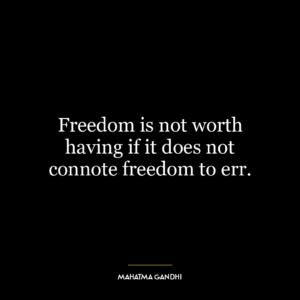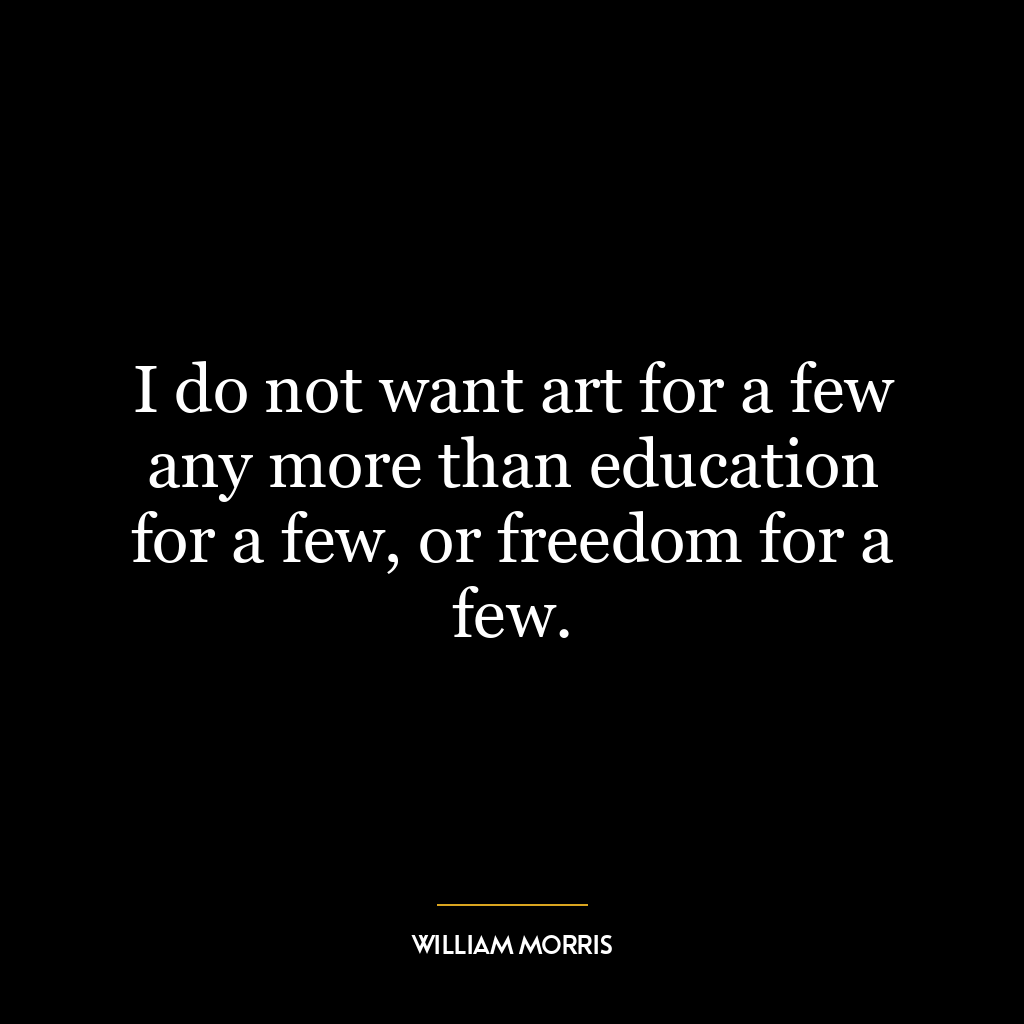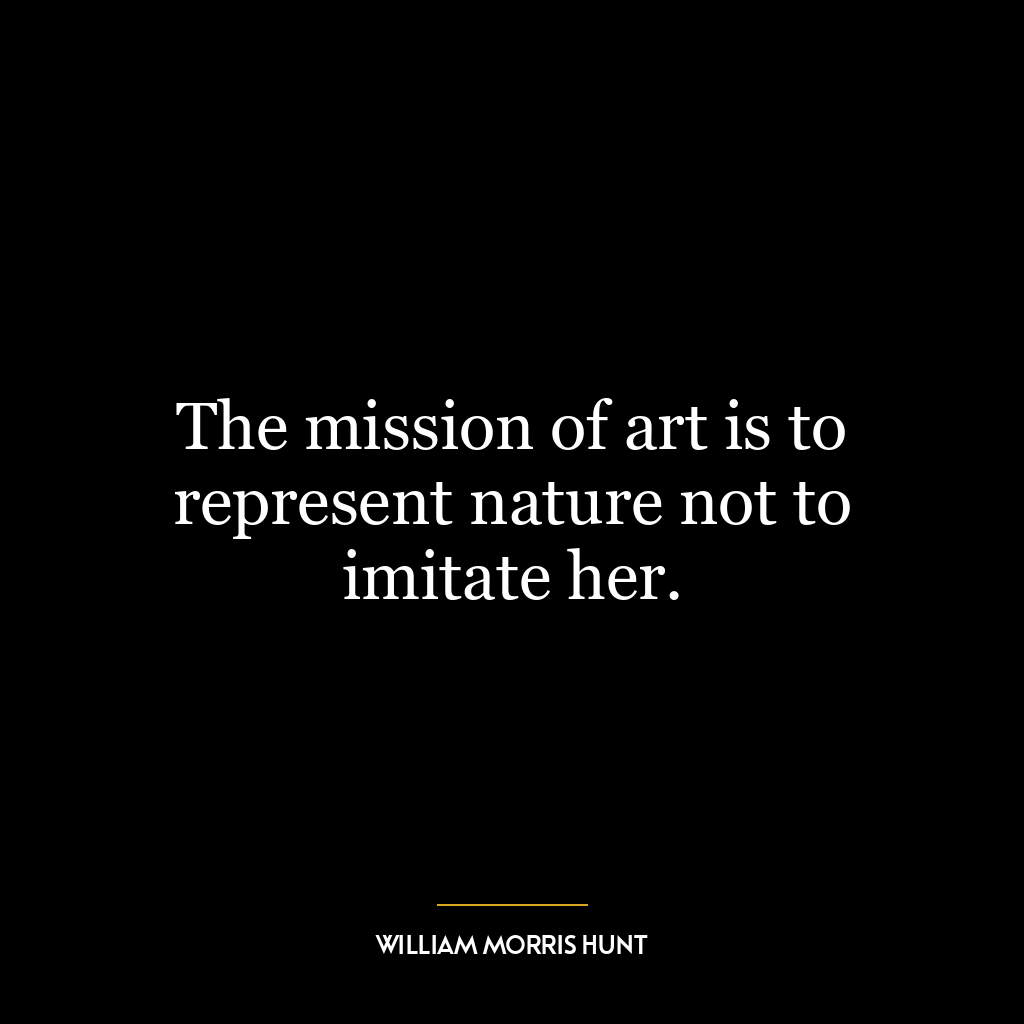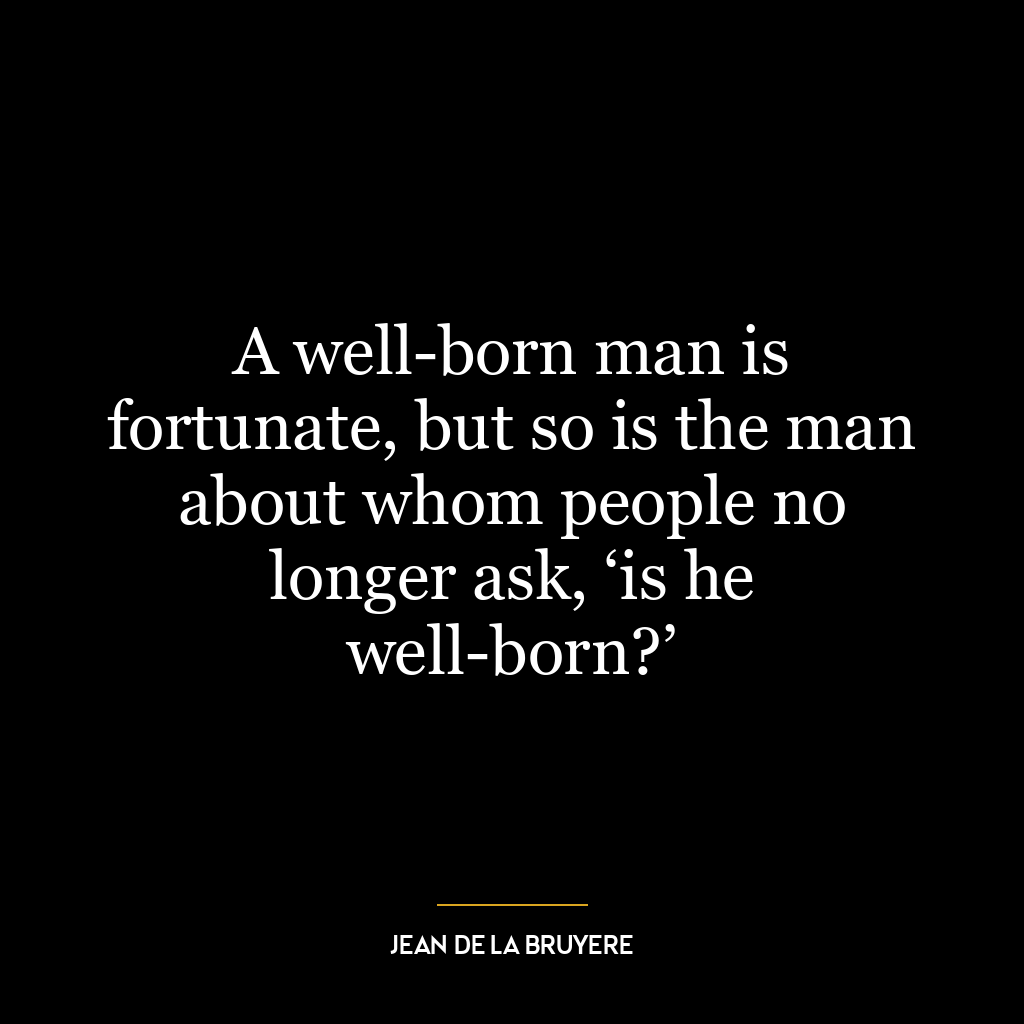Every man has an equal right to the necessaries of life even as birds and beasts have.
This quote essentially encapsulates the belief in the fundamental right of every individual to have access to basic necessities, such as food, water, shelter and healthcare. The comparison with birds and beasts underscores this point further by suggesting that if animals – which are considered lower forms of life – have access to their basic needs without hindrance, then humans should also enjoy these rights freely.
The phrase “equal right” emphasizes on equality. It suggests that these rights should not be based on one’s social status, wealth or power; everyone is entitled to them simply because they are alive. By comparing humans’ rights with those of animals’, Gandhi implies that these rights are natural and inherent rather than something granted or bestowed upon by others.
In today’s world, this quote can be seen as a call for social justice and equity. Despite advancements in technology and economy globally, there still exists a significant gap between the rich and poor when it comes to accessing basic necessities. This disparity is evident in developing countries where poverty rates are high but also in developed nations where wealth inequality persists.
In terms of personal development, this idea encourages empathy towards others who may not have the same resources available to them. It promotes understanding that everyone has an equal right to life’s necessities regardless of their circumstances. As individuals become more aware of these disparities around them, they might feel compelled to take action whether through volunteering their time or advocating for policies aimed at reducing inequality.
Moreover, it reinforces humility by reminding us that no matter how accomplished we may become in life; our most fundamental needs remain the same as those of any other creature on Earth – food, shelter & safety from harm – underscoring our shared vulnerability & interdependence as living beings.












